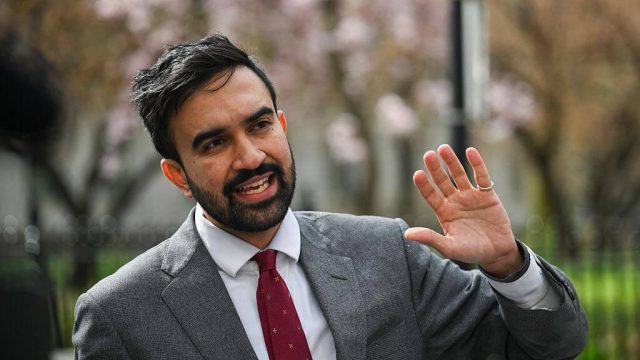Have our economies done enough growing?
Why do policymakers find it so difficult to question the assumptions that underpin much of traditional economic policy?

Guest author Russell England explores the issue of GDP and economic growth and questions the assumptions that underpin so much of traditional economic policy.
A town in rural Kentucky advertises itself as one of the best small towns in America, using its homely charm to attract new residents. Meanwhile, a large city in the south-eastern US announces it will spend $20 million to attract millennials to live and work there.
What do these very different places have in common? The obvious answer is that they both want to attract growth. But that’s only part of the story.
In both locations, civic leaders are trying to promote economic growth, and in both cases they understand that economic growth is driven (at least in part) by population growth. And, since the only indicator of economic health that these leaders care about is gross domestic product, they are firm believers in the mantra of “bigger is better”: a bigger economy is a better economy, growth is good, and a swelling GDP will mean a higher quality of life for all.
It is a near certainty that none of these decision makers have put much thought into the long term results of their actions. The small town takes pride in its cosiness, but what ploy will it use to attract more growth after it is no longer a small town? And when will the large city, infamous for its traffic and terrible public transport, decide that it has grown large enough?
Infinite growth on a finite planet
Over my career as a fisheries biologist, I’ve often been asked to comment on whether development proposals might harm streams or lakes. In most cases, individual projects don’t have a significant impact by themselves. But by the late 1980s, it became apparent that the combined impact of dozens of new housing projects, roads, power plants and shopping centres was indeed significantly altering ecosystems.
Around the same time, I noticed that public opposition to individual development projects was starting to grow – even though few people were yet seeing the big picture. A phrase often heard at public meetings was “I’m not against growth, but…”
Folks did not want projects in their backyard. But it had not yet dawned on them - and for the most part still hasn’t - that given governments’ efforts to promote growth, eventually there will be construction projects in everyone’s backyard.
“ Until our leaders understand that measuring economic success solely in GDP terms is deceptive, they will continue to undermine the present and endanger our futures.”
Governments at all levels around the world actively promote growth in many ways. Authorities in Georgia and other US states give tax breaks and sell land at reduced rates to lure industry and put water, sewer and transportation infrastructure in place well ahead of demand. At the federal level, the U.S. Department of Commerce states on its website as its overarching goal: “to help the American economy grow.”
It would also seem obvious that the burgeoning national debt has played a strong role in economic growth for decades, but especially the current economic boom. If a government borrows money and passes it out to its citizens (be it in the form of cash or reduced taxes) it will stimulate spending, thus making the economy, as measured in gross terms, look very good – perhaps even the greatest it’s ever been.
But how sustainable is it to pile further borrowing onto a nation that is already deep in debt, just to make politicians look good to a citizenry that is largely ignoring the big picture?
Destroying the environment to grow the economy
The Ogallala aquifer, lying below the Great Plains in the United States, is a good example of resource depletion to support growth. Covering approximately 450,000 square kilometres, it is one of the world’s largest aquifers, providing irrigation for hundreds of thousands of farmers, and drinking water for about 2 million people. But it is rapidly being depleted; withdrawals are far in excess of its recharge rate. Some estimates indicate it could be depleted in another ten years.

Thankfully, not all nations are so focused on growth. New Zealand has introduced its wellbeing budget for 2019, based on twelve indicators of general wellbeing, thus acknowledging that economic growth alone is an inadequate measure of a nation’s progress. A few other countries have made some steps toward a wellbeing approach, but New Zealand’s is the most comprehensive – and well worth watching.
It seems apparent that ecologists and economists are not effectively communicating with each other. There is some discussion at the academic level, but it’s not filtering down to policymakers in state and local governments. We need ordinary people to be able to talk about economic growth and environmental limits – both with their friends and their elected representatives. My book Gross Deceptive Product: An Ecological Perspective on the Economy sets out in clear, concise language why depletion of finite natural resources, ever-increasing debt, and continuous population growth are simply not sustainable.
Until our leaders understand that measuring economic success solely in GDP terms is deceptive, they will continue to undermine the present and endanger our futures. After all, no matter how much we humans alter our environment or grow our economies, in the long run nature's ecosystem, not the human economy, will determine our fate as a species.
- Russell England
The Green Economy Coalition believes that dialogue and discussion are cornerstones of effective policy-making. Therefore we publish articles from a broad range of contributors, covering a wide range of views. The views expressed by our guest authors do not necessarily reflect the policy or positions of the GEC; furthermore, since our coalition and our contributors are reflective human beings navigating a complex world, all our views are liable to change over time.


